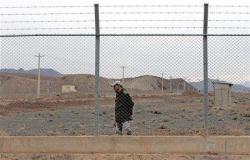UN Security Council: Iran sanctions premature
 Left: US Ambassador to the UN, John Bolton
Left: US Ambassador to the UN, John BoltonWith increasing signs that several fellow Security Council members may forestall a US push to sanction Iran for its nuclear enrichment program, administration officials signified they were prepared to form an independent coalition to freeze Iranian assets and restrict trade.
The US might go at it unilaterally, or with a "coalition of the willing," bypassing the United Nations again. Bolton and other US administration officials indicated they are prepared to form an independent coalition.
The US strategy, analysts say, reflects not only U.S. frustration with the Security Council's inaction on Iran but also the current weakness of Washington's position because of its controversial role in a series of conflicts in the Middle East, most recently in Lebanon.
"Washington could ramp up its own sanctions, including intercepting missile and nuclear materials en route to Iran, and imposing financial constraints on Iran under existing terrorism laws, and is encouraging other countries to follow suit," Bolton said.According to Russian Defense Minister, Sergei Ivanov, talk of introducing sanctions against Iran after its response to the world powers' demand to freeze uranium enrichment and reprocessing activities was as yet, "premature."
"It is at least premature and unsound to speak of sanctions" as of now, Ivanov said as quoted by the ITAR-TASS news agency.
"In any case, Russia will continue to urge a political and diplomatic resolution (of the Iran nuclear problem), with the non-proliferation regime observed fully and harshly," Ivanov said.
Sergei Ivanov explained that as long as Iran was willing to negotiate, it was "premature" to punish the country [Iran] and perhaps permanently isolate it.Russian Foreign Ministry spokesman Mikhail Kamynin also, said talk of UN security council measure was “premature.”
Kamynin clarified that “Russia will continue with its course of searching for a political solution … and will continue to seek to preserve the role of the International Atomic Energy Agency and prevent the erosion of the non-proliferation regime.”China similarly, appealed for dialogue, urging “constructive measures” by Iran and patience from the United States and its allies.
French Foreign Minister Philippe Douste-Blazy said Iran's response "is not satisfactory, but France wants to avoid a new conflict that could lead to "a clash of civilizations."
"But the worst thing would be to escalate into a confrontation with Iran on the one hand, and the Muslim world with Iran, and the West," he said on French radio.
"That would be the clash of the civilizations that France today is practically alone in trying to avoid."The United States, Britain and some EU nations have reacted coolly to Iran's response to a package of incentives offered by the five permanent Security Council members and Germany in return for a moratorium on sensitive uranium activities.
 Above: Satellite view of the Iranian Natanz Nuclear Facility.
Above: Satellite view of the Iranian Natanz Nuclear Facility.Iran is suspected by some nations in the West of trying to build nuclear weapons under cover of a civilian nuclear power program. Government officials of Iran have consistently rejected this suspicion, and have insisted upon Iran's right to its own nuclear power program as provided to all signatories of the Non Proliferation Treaty.
Iran has been working on its nuclear power program with the technical assistance of Russia and an Iranian delegation is currently visiting nuclear installations in Russia.
 Above: An Iranian soldier stands guard inside the Natanz uranium enrichment facility.
Above: An Iranian soldier stands guard inside the Natanz uranium enrichment facility. The 5 permanent members of the UNSC plus Germany are studying Iran's latest offer on August 22, 2006, of more talks to resolve the nuclear dispute to determine if Tehran's response went far enough to avert the threat of U.N. sanctions.
The Bush administration utilized this same genre of rhetoric to stall calls from the international community for a ceasefire during the Israeli war on Lebanon. The US maintained that a ceasefire remained "premature" until the conditions on the ground in Lebanon could avail a lasting peace. The whole world wanted UN Security Council intervention in order to stop the civilian deaths, except the US, Britain and Israel.
US Secretary of State Condoleezza Rice framed the matter then, by insisting that "a ceasefire would be premature in the goal of achieving an enduring peace."
Well, Russia and China have learned well from the masters of rhetoric and are now formulating the incessant calls from the US and some EU nations for a UNSC resolution against Iran as premature.
The US claims Russia and China are now, forestalling the UN Security Council process. I guess it takes a staller to know a forestaller, doesn't it?

0 Comments:
Post a Comment
<< Home